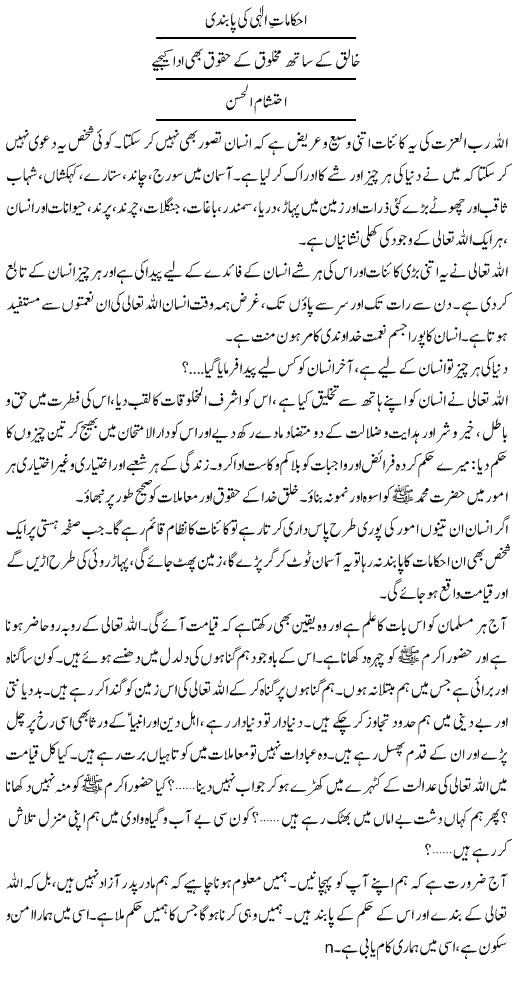“Man does not get tired of asking for good; but if an evil touches him, then he gives up all hope and is lost in despair. And truly, if We give him a taste of mercy from Us, after some adversity has touched him, he is sure to say: ‘This is due to my (merit); I think not that the Hour will be established. But if I am brought back to my Lord, surely there will be for me the best with Him.’ Then, We verily will show to the disbelievers what they have done, and We shall make them taste a severe torment. And when We show favor to man, he turns away and becomes arrogant; but when evil touches him, then he has recourse to long supplications.” (Qur’an, 41:49-51)
Ibn Kathir writes in his commentary on the above verses: Allah tells us that man never gets tired of asking his Lord for good things, such as wealth, physical health, etc., but if evil touches him – trials and difficulties or poverty – “then he gives up all hope and is lost in despair.” He thinks that he will never experience anything good again.
If something good happens to him or some provision comes to him after a period of difficulty, man says, ‘this is because of me, because I deserve this from my Lord.’
The verse “I think not that the Hour will be established” means that he does not believe the Day of Judgment will come. So when he is given some blessing, he becomes careless, arrogant and ungrateful. Allah says: “Nay! Verily, man does transgress. Because he considers himself self-sufficient.” (Qur’an, 96:6)
The verse “But if I am brought back to my Lord, surely there will be for me the best with Him” shows man’s feelings that if there were a Hereafter after all, then my Lord will be generous and kind to me just as He was in this world. So he expects Allah to do him favors in spite of his bad deeds and lack of firm faith. Allah then says: “Then, We verily will show to the disbelievers what they have done, and We shall make them taste a severe torment.” Allah threatens punishment and vengeance to those whose conduct and belief is like that.
The verse “And when We show favor to man, he turns away and becomes arrogant” means that man turns away from doing acts of obedience and is too proud to obey the commands of Allah. This is like the verse: “But Pharaoh turned away along with his hosts.” (Qur’an, 51:39)
Allah continues to say about man that “when evil touches him,” which means difficulties, “then he has recourse to long supplications.”
Man asks at length for one thing. Long supplications are those which are long in words, but short in meaning. The opposite is concise speech, which is brief but full of meaning.
Allah also says: “And when harm touches man, he invokes Us, lying on his side, or sitting or standing. But when We have removed his harm from him, he passes on as if he had never invoked Us for a harm that touched him!) (Qur’an, 10:12)



